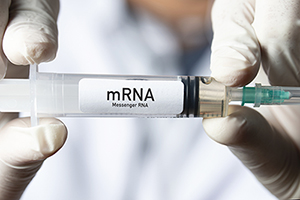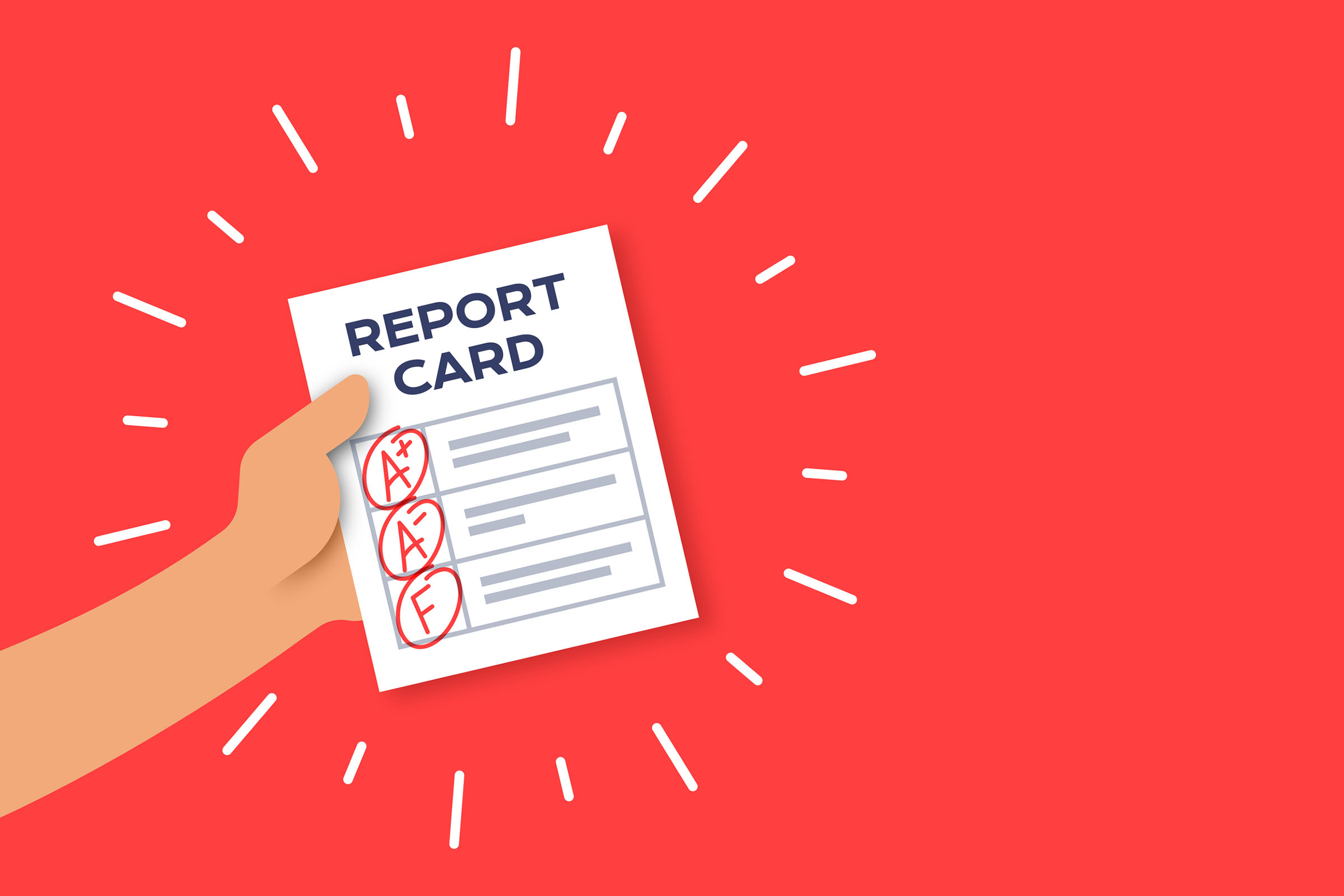As I continue my travels, I am lending this space once again to my friends at the Alliance for Natural Health for an important message about the future of vaccine technology.
I’ve been a board member at ANH for the last 20 years and now serve as Medical Director and President; I hope you’ll join in our commitment to preserving access to natural health choices!
If you haven’t yet, be sure to check out their work on the latest encroachment on our freedom of supplement choice, and let’s join forces to let our representatives know we won’t go down without a fight! For a limited time, I’m matching all donations to ANH from my audience up a total of $5000. Click for more info.
—Dr. Hoffman
“We will have that vaccine and it will be highly effective, and it will save many hundreds of thousands, if not millions of lives. I think we will be able to offer personalised cancer vaccines against multiple different tumour types to people around the world.”
So said Dr. Paul Burton, chief medical officer of Moderna, his quote being taken from an article by Linda Geddes in The Guardian newspaper in the UK, published on April 8, 2023. Now that we’re in the lee of the COVID-19 pandemic, don’t think for a minute that mRNA technology has been shelved until such time that the next pandemic comes around.
In the space of less than a year of development and two years of trialing on a global population, the pandemic fast-tracked a developmental process that was already underway but might have taken another 10 or more years to complete had it not been for the catalytic, coordinated, global response to a Public Health Emergency of International Concern, sponsored by the World Health Organization (WHO).
From ‘pill for an ill’ glory to setback
The Pharma business model predicated on patenting new-to-nature molecules, with some 75% of compounds based on molecules originating from nature, especially plants, worked brilliantly during the second half of the twentieth century. A consistent sequence of blockbuster drugs would roll out of Pharma’s incredibly well-funded R&D pipelines, seamlessly replacing those for which patents had expired. The model, over the 60 years from 1950, was central to Pharma becoming Big Pharma, and one of the most influential corporate forces on the planet.
However, a setback occurred as the first wave of blockbusters hit a patent cliff around 2010. Among the casualties were Lipitor (atorvastatin), Caduet (amlodipine/atorvastatin), Combivir (lamivudine/zidovudine), and Solodyn. Another 15 blockbusters will be casualties in the coming decade. Conventional drug R&D pipelines are now lighter than ever as pathway-blocking, symptom-targeted drugs fail to either work well enough, be safe enough, be cost-effective enough, or, competitive enough to face competition from generics.
Pharmacogenetic flop
As rapid, cost-effective, ‘next gen’ sequencing technologies evolved at the turn of the millennia, Pharma pinned its hopes on pharmacogenomics: drugs tailored to the genetics of individuals. But trials of such tailored drugs flopped; people with specific genomics responded very unpredictably as we learned that environmental influences on our genome – our book of life – caused huge variations in gene expression. Enter the world of epigenetics, which teaches us about gene-environment interactions that are at the heart of understanding an individual’s health status at any one time as well as the likely response to given treatments or interventions.
A quote attributed to Dr. Judith Stern, a nutritional scientist at the University of California, “Genetics loads the gun, but the environment pulls the trigger”, provides us with a fundamental and important truism.
mRNA – new platform, new hope
Fast forward. Just prior to the news of COVID-19’s existence, at the end of 2019, the market value of the five companies working on mRNA technology was some US$15 billion. By August 2021, capitalization had grown an eye-watering 2000% to an estimated US$300 billion.
There are two main pathways for mRNA technology; prophylactic products, principally vaccines, and therapeutics, that will aim to target specific diseases, largely cancers, certain forms of heart disease, autoimmune diseases, and a plethora of rare, genetically-mediated diseases. By 2035, a market estimate suggests prophylactic mRNA-based vaccines, most other than COVID-19, will represent 50% of sales of mRNA products, with therapeutic cancer vaccines representing around 30%, the remaining 20% including all other therapeutic mRNA products.
“Shhh – they don’t need to know”
The technology is so fundamentally different in its mode of action compared with any drug before it. Yet lockdowns, bland messaging by health authorities, coupled with cancel culture and the gaslighting of scientific dissenters, have ensured few among the public know this. The technology relies on instructions being encoded on synthetically produced messenger ribonucleic acid (mRNA), which is then encased in a lipid nanoparticle and delivered to the body, usually via injection. It gets taken into target (or non-target) cells where it enters the transcription machinery of organelles called ribosomes that punch out whatever protein has been encoded within the synthetic mRNA instruction template. The body in effect becomes a targeted protein drug factory. It can trick the body into mounting an immune response to any endogenously manufactured protein, even a patented one (as is the case with C19 genetic vaccines).
Moderna and Pfizer’s proposed use of mRNA technology for cancer relies on one prevailing theory that attempts to explain cancer causation, namely the somatic mutation theory. The idea that mutations (oncogenes) are primarily the cause of the sequence of events that leads to uncontrolled metastases, remains controversial (e.g. here and here), despite the theory underpinning much of the R&D in the field of oncological drugs and vaccines. The notion on which it’s based may sound entirely plausible, but so it did for SARS-CoV-2. What mRNA technology protagonists like the US National Cancer Institute claim was the huge success of covid-19 genetic vaccines, could equally be described as a spectacular failure. The shots simply didn’t meet their promise of effectiveness, which revolved around their ability to trigger a sufficiently robust neutralizing immune response in recipients to stop transmission of the virus. The widespread claim for them being “safe” is equally questionable given the mounting data on harms, excess vaccine-related deaths and data manipulated by health authorities.
Why mRNA and the WHO are linked at the hip
As we move towards the prospect of being exposed to more mRNA technology, we need to be hyper-aware of a few things. Among these are prevailing principles of medical ethics which still value self-determination, autonomy, choice, and informed consent. But these principles, astonishingly, are set to be cast aside in the event of any global health emergency called as such by the WHO. We are being continuously groomed for another such emergency, one that might well emanate from a(nother) lab leak (as most likely SARS-CoV-2 did).
This disregard of long-standing principles of medical ethics is built into the planned power grab currently being sought by an unelected, unaccountable, supranational body. Yes, the WHO. While originally being supported by the member states to which it saw itself accountable when it was established in 1948, stakeholders including the Gates Foundation and Gavi now donate four times more than all 194 WHO member state countries.
Among the extended powers that would be granted to the WHO under the proposed ‘pandemic treaty’ and amendments to the International Health Regulations (IHR, 2005), these currently being fast-tracked for adoption at the World Health Assembly meeting in May 2024, are:
- Broadening the context within which the WHO can determine a global infectious disease emergency that triggers binding obligations from member states
- Converting what were previously non-binding recommendations into binding ones that would provide the WHO with legislative powers over its member states (which are among its donors)
- Extending the WHO’s executive powers to decide exactly what biotherapeutic products, vaccines, surveillance, and restrictions on freedoms are considered appropriate. This includes being able to instruct member states to manufacture them in accordance with its requirements
- Fast-tracking safety testing of vaccines to allow vaccines to be developed in just 100-days (see CEPI ‘100 day’ initiative)
- The enforcement of mandatory or forcible vaccination
- The WHO would become the self-appointed arbiter of scientific truth and misinformation
Will you have your say?
WHO member states are presently looking closely at the treaty and amendments to the IHR. For those lucky enough to still be living in countries that ostensibly call themselves democratic, there will be small windows of opportunity for the people to have their say. The UK Parliament and its people are in the midst of such consideration, one that follows its decision in 2016 to walk away from another unaccountable supranational body, the European Union.
Albeit with a note of despair and cynicism, we can only hope that those who don’t try to arrest the WHO’s power grab and extension of powers have a plan B. That might have to involve going into hiding, falsifying their identity documents, and avoiding international travel, and the use of a cell phone.
For more information, please visit the Alliance for Natural Health (ANH) International website, www.anhinternational.org and search mRNA, covid and other terms of interest. You can subscribe to ANH Intl’s free newsletter and, at a nominal monthly fee, become a Pathfinder supporter, while unlocking additional membership benefits.
Rob Verkerk, B.Sc., M.Sc., D.I.C., Ph.D., F.A.C.N. serves as executive & scientific director, Alliance for Natural Health (ANH) International and ANH-USA








